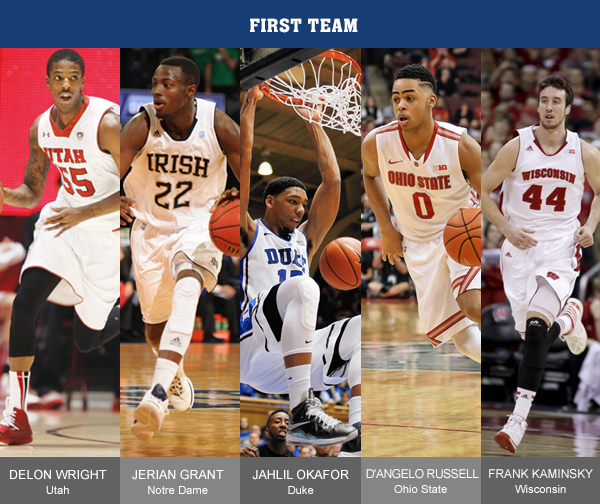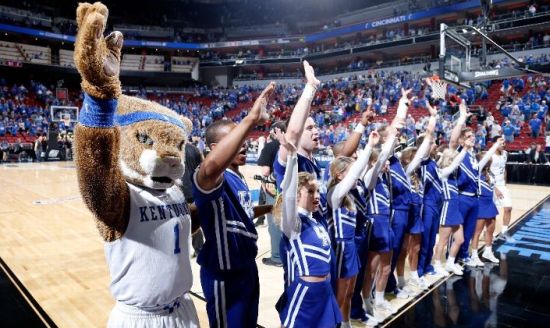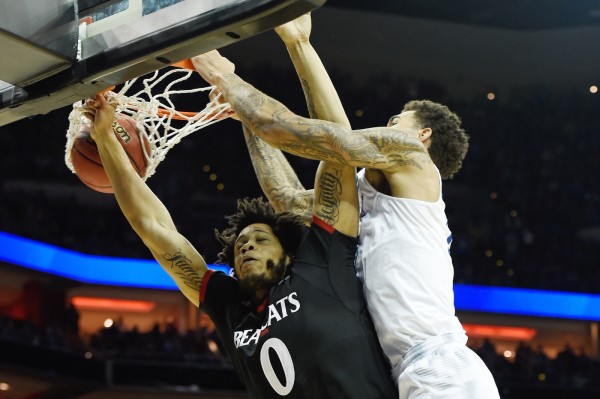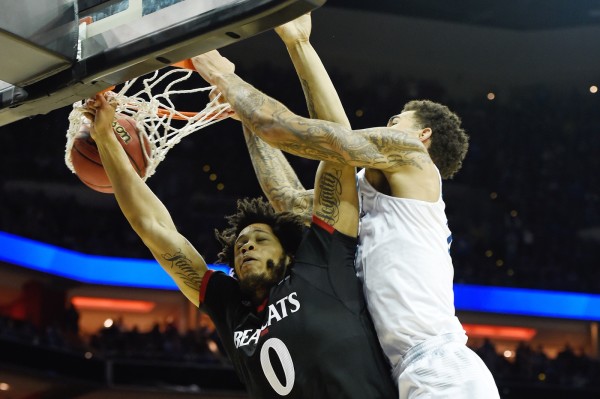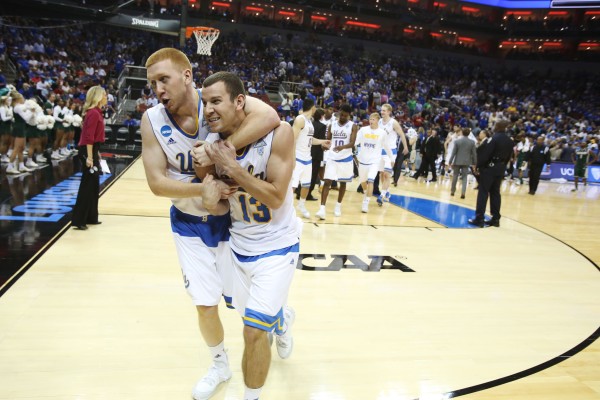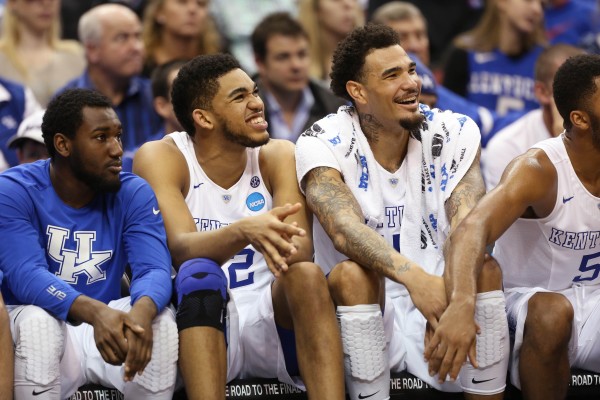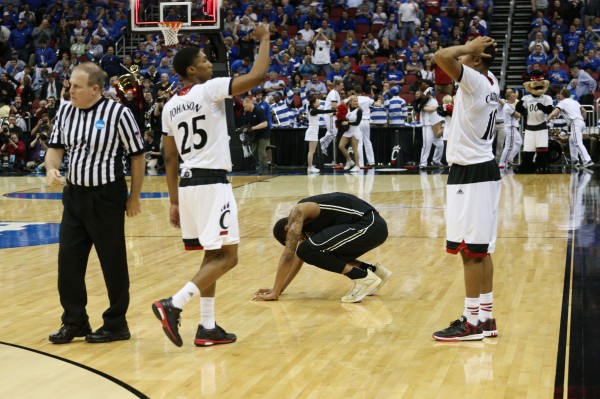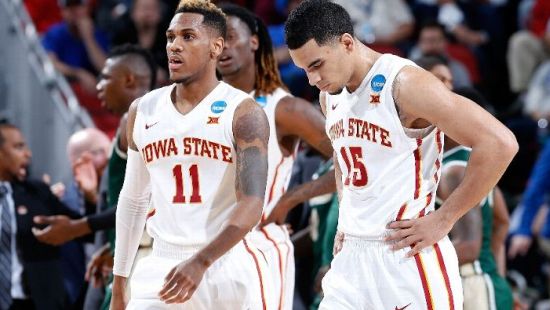2014-15 Rush the Court All-America Teams
Posted by Walker Carey on April 3rd, 2015Compiling preseason All-America teams is a difficult task because nobody knows what is going to occur during the season. There will always be players who will fail to live up to expectations and there will always be under the radar types who will unexpectedly emerge to stardom. When our group of seven RTC pollsters selected their preseason All-America teams back in November; nobody could have guessed that only five of the 15 names on that list would be able to live up to the hype: Wisconsin’s Frank Kaminsky, Duke’s Jahlil Okafor, Wichita State’s Fred VanVleet, Gonzaga’s Kevin Pangos, and Kentucky’s Karl-Anthony Towns. The only two players who were projected to be a first team All-American and finished there were Kaminsky and Okafor. The 10 players who we selected as preseason All-Americans who did not make our team: North Carolina’s Marcus Paige, West Virginia’s Juwan Staten, Louisville’s Montrezl Harrell, Wichita State’s Ron Baker, Michigan’s Caris LeVert (spent much of conference play injured), Wisconsin’s Sam Dekker, Arizona’s Rondae Hollis-Jefferson, Arizona’s Stanley Johnson, Iowa State’s Georges Niang, and Nebraska’s Terran Petteway. They all had very productive seasons, but they were surpassed in achievements by the names that rose to the top of our list. Here are the 2014-15 RTC All-America Teams.
First Team All-America
- Frank Kaminsky, Senior, Wisconsin (consensus) (18.7 PPG, 8.0 RPG, 54.9% FG, 41.5% 3FG). Kaminsky wrapped up his collegiate career in dynamite fashion. The RTC National Player of the Year and Big Ten Player of the Year has been the best player on a Wisconsin team that won the outright regular season Big Ten title, the Big Ten Tournament title, and the NCAA Tournament West Region. As the Badgers prepare for their final matchup with Kentucky on Saturday, it should be noted that Kaminsky has been excellent throughout March, recording 31 points in a March 1 win over fellow Final Four participant Michigan State, 27 points against Coastal Carolina in the round of 64, and 29 points against Arizona in the regional final.
- Jahlil Okafor, Freshman, Duke (consensus) (17.5 PPG, 8.7 RPG, 66.8% FG). The ACC’s first-ever freshman to win league Player of the Year has been a sensation from the day he stepped foot on Duke’s campus. The top recruit from the Class of 2014 did not disappoint in what will almost absolutely be his only season in Durham. Okafor was a dominant offensive post presence during the Blue Devils’ 28-3 regular season, as he scored in double figures in 30 of the team’s 31 games. Duke enters the Final Four with national title aspirations — and with a player like Okafor at its disposal, it is easy to see how those dreams could come true.
- D’Angelo Russell, Freshman, Ohio State (19.3 PPG, 5.7 RPG, 5.0 APG, 41.1% 3FG). Russell burst on to the scene in incredible fashion in what will likely be his only season in Columbus. The Big Ten Freshman of the Year topped 25 points five times during conference play, and along with his prolific scoring, he showcased some exceptional distribution skills. Ohio State was inconsistent as a team this season, but it always could rely on Russell to fill the stat sheet and act as a terrific playmaker.
- Jerian Grant, Senior, Notre Dame (16.5 PPG, 6.7 APG, 1.7 SPG, 47.8% FG). Grant’s return from an academic suspension that cost him the second semester of his junior season to lead the Irish to the Elite Eight was one of the stories of the year in college basketball. The senior guard lifted Notre Dame to a new level with his knack for hitting big shots, incredible passing, and overall leadership skills. Grant saved his best for the biggest games, which was evident by his 23-point, 12-assist performance in a January 28 victory over Duke and a 24-point, 10-assist effort in the ACC Tournament championship game victory over North Carolina.
- Delon Wright, Senior, Utah (14.5 PPG, 5.1 APG, 4.9 RPG, 2.1 SPG, 50.9% FG). Utah advanced to its first Sweet Sixteen since 2005 this season, and the biggest reason for that was Wright’s play. The Utes epitomized team basketball with their style, but it was Wright who was routinely called on to make the big play late in the big game. While Wright has exhausted his eligibility, his consistency and leadership will be etched into Larry Krystkowiak’s program for many years to come.





























